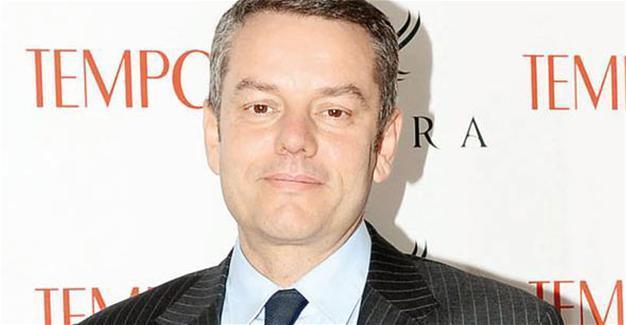Right to a fair trial is at stake in Turkey
SERKAN DEMİRTAŞ - ANKARA

Istanbul, which is one of the biggest cities in the world with around 15 million residents, also has a grandiose court house in the Şişli district. The courthouse, or “Justice Palace” in a more direct translation from the Turkish, is an important example of the massive structures built during the Justice and Development Party’s (AKP) time in power.
The courthouse complex is more like a concrete jungle than a remarkable architectural example, but it is certainly very well equipped with modern technology, is spotlessly clean and has a luminous interior.
Two large sculptures of Themis, the global symbol of justice, welcome those who enter the building in the atrium, trying to give people the feeling of confidence in the Turkish justice system. However, this image is increasingly at odds with the real situation.
I have been attending the trials of Barbaros Muratoğlu, the Ankara representative of Doğan Holding, who was detained on Dec. 1, 2016 over allegedly “helping a terrorist organization.” He was arrested on Dec. 15, 2016 following a series of articles published in a pro-government newspaper.
Muratoğlu is charged with helping the Fethullahist Terror Organization (FETÖ) because he signed a contract with an Ankara-based law firm, some of the employees of which were later identified as sympathizers of the Fethullah Gülen movement. Some of his contacts were also found to be users of ByLock, a communication application used by Gülenists. In addition, Muratoğlu’s visit to Gülen in-person, along with a group of journalists in 2012, was also included in the indictment as evidence of his connection with the group.
New prosecutor stuns the defense As the police investigation and judicial process had reached a certain point, the prosecutor had requested the release of Muratoğlu in March and in April, on the grounds that all the evidence had been collected and there was no suspicion that the suspect could run away. But the court rejected both demands.
Under these circumstances, on the 167th day of Muratoğlu’s imprisonment the latest trial took place at the 13th Heavy Panel Court with a change in the prosecutor. As the former one, who twice demanded the release of Muratoğlu, was off-duty on May 16, he was replaced by another prosecutor, İlkay Özcan, who had a completely different legal opinion of the case.
Citing Muratoğlu’s alleged link with another ongoing prosecution – without actually detailing what that case might be - and voicing strong suspicion that the suspect might try to flee, the prosecutor demanded the continuation of the arrest.
All three of Muratoğlu’s attorneys - Köksal Bayraktar, Şehnaz Yüzer and Ahmet Çörtoğlu - were stunned by the legal opinion voiced by Özcan, as they had been expecting an announcement of his opinion on the accusations.
“I must confess I’m shocked,” said Bayraktar, who is also a professor of law at Yeditepe University. “In such situations, the prosecution should introduce solid reasons for the continuation of the arrest. But what we have had for the last six months is nothing more than non-concrete reasoning. What have we been doing here for six months and why has our client been deprived of his freedom if we are only supposed to start a new case today?”
No information given to the defense Yüzer recalled that it was not usual for the defense to hear about the existence of another case that the suspect might be linked to and directly asked by the prosecution to give information on it. The prosecutor said the defense will get the necessary information when the dossier is provided, leaving Muratoğlu and his lawyers in the dark. Yüzer complained that this situation was making defending their client nearly impossible and thus constituted a blow to the right to a fair trial, in violation of case laws issued by the European Court of Human Rights.
Çörtoğlu underlined that the prosecutor had the right to get information on the dossier, in which Muratoğlu was allegedly mentioned, online by using the national judiciary informatics system. He also stressed that the continuation of his arrest needs to be based on solid grounds, which the prosecution has failed to provide from the very beginning. “I call on you to activate not only your legal conscience but also your humane conscience and order the release of Mr. Muratoğlu,” Çörtoğlu told the president of the court.
Thousands of similar cases Muratoğlu is only one of thousands of victims of Turkey’s poorly functioning justice system, especially under state of emergency rule since the failed coup attempt of July 2016. The number of Turkish nationals behind bars since July 2016 has exceeded 40,000 over links with the FETÖ, regardless the quality and accuracy of the evidence provided.
The operations are not limited to former military officers who physically took part in the coup attempt, or even to judicial personnel and other civil servants identified as active members of the Gülen movement. They have also engulfed many journalists from many different walks of life and ideologies.
This has led to a further deterioration of democratic norms fundamental freedoms and human rights in Turkey, which has also had an impact on the country’s image abroad and its relationship with European institutions.
Even only one case can be enough to draw sharp conclusions.
 Istanbul, which is one of the biggest cities in the world with around 15 million residents, also has a grandiose court house in the Şişli district. The courthouse, or “Justice Palace” in a more direct translation from the Turkish, is an important example of the massive structures built during the Justice and Development Party’s (AKP) time in power.
Istanbul, which is one of the biggest cities in the world with around 15 million residents, also has a grandiose court house in the Şişli district. The courthouse, or “Justice Palace” in a more direct translation from the Turkish, is an important example of the massive structures built during the Justice and Development Party’s (AKP) time in power.